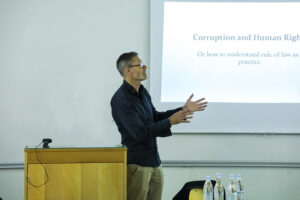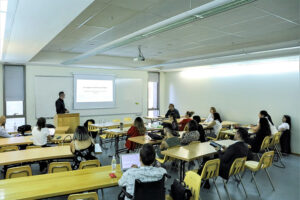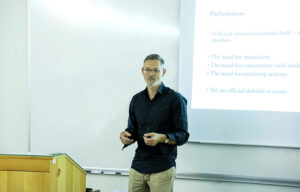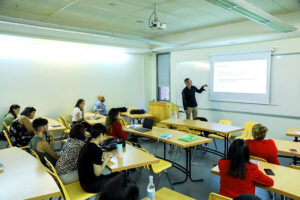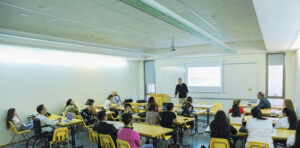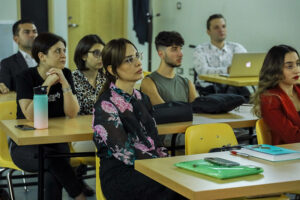
Corruption and Human Rights: a nexus for change?
On 15 September the MA Human Rights and Social Justice program organized a guest lecture at the AUA on corruption and human rights, hosting Mr. Morten Koch Andersen who is currently senior advisor and researcher at the Raoul Wallenberg Institute of Human Rights and Humanitarian Law.
Mr. Andersen specializes in the nexus between corruption and human rights. He has worked in human rights and civil society for more than a decade, with a special interest in torture, rule of law practices, impunity and (unequal) citizenship. He previously worked as programme manager of development interventions on torture prevention and rehabilitation of survivors (legal reform, civil society support/education, professional peer support south/south etc.) for more than 10 years. He has worked for Danish Institute against Torture, Danish institute for international studies, Copenhagen University.
The lecture looked into the relationships between corruption and human rights, and discussed the potentials for change, institutionally, legally and politically. Mr. Andersen claimed that corruption “facilitates, perpetuates and institutionalizes” violations of human rights, and that more instances of violence and torture could be found where there are higher levels of corruption. Corruption and human rights though have long been addressed in both academia and policy circles as two separate domains of knowledge and practice, which can explain an implementation gap between human rights and anti-corruption efforts. The meanings and implications of the term ‘corruption’ are far from self-evident. The speaker emphasized that still there is no universally comprehensive and accepted definition of corruption that can capture the multiple forms that corruption takes, and we need to explore the different behaviors that people categorize as corrupt and to identify the frameworks in which they make these judgments, in order to grasp the drivers of such actions. To understand the causes of corruption we therefore need to understand the diverse and often contradictory allegiances, obligations and normative registers within which people operate, which can extend far beyond the formal institutional realm.
After the lecture the students representing MA HRSJ, PSIA, PG and L.L.M programs were enthusiastically engaged in the Q&A session addressing their inquiries to the lecturer, particularly on the relations between human rights violations and corruption aiming to understand how violations are produced in the context of unequal and overlapping social relations.

